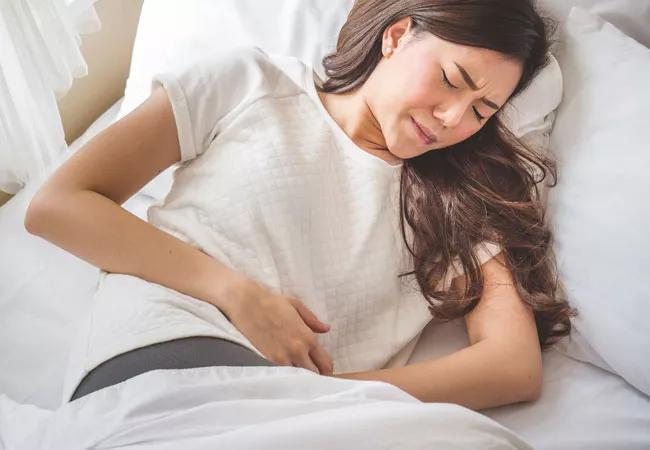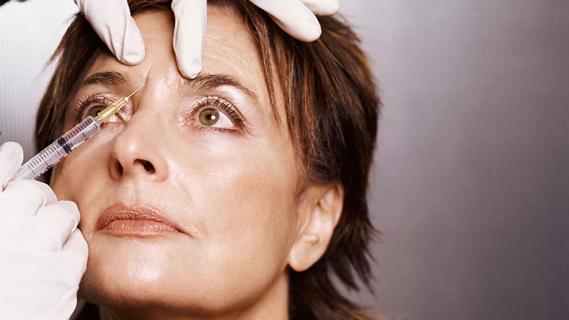The Short Answer from a women's health practitioner

A. If you notice on heavy days of your period that blood seems extra-thick, and can sometimes form a jelly-like glob, these are menstrual clots, a mix of blood and tissue released from your uterus during your period.
Advertisement
Cleveland Clinic is a non-profit academic medical center. Advertising on our site helps support our mission. We do not endorse non-Cleveland Clinic products or services. Policy
They can vary in size and color, and usually, they are nothing to worry about.
Most of the time, menstrual clots are normal, but some symptoms can signal other health concerns.
The color of a menstrual clot, which can range from bright to deeper red, doesn’t matter as much as the size. If you’re noticing menstrual clots larger than a quarter, especially if you are soaking pads every hour, talk to your health practitioner.
The clotting is the body’s way of protecting us, but if it happening frequently, you need to pay attention.
Watch for these other symptoms if you experience heavy flow and menstrual clots:
Commonly, the cause of heavy bleeding is structural or hormonal.
Possible causes include fibroids, polyps, ovaries failing to release eggs, bleeding disorders, thyroid disorders, or, more rarely, uterine, cervical or endometrial cancer.
To narrow down the cause, your health practitioner likely will start by taking your medical history and performing a physical. Imaging may be needed to look inside the uterus. If there’s a cancer risk, a biopsy of the uterus also may be necessary.
Treatment depends on the cause; surgery may be needed if the problem is structural, while ibuprofen can help reduce bleeding and pain. Hormones may be helpful as well.
Advertisement
I strongly suggest lifestyle changes to help women regulate their cycles. This means a focus on physical activity and eating well, particularly eating less processed food.
Advertisement
Learn more about our editorial process.
Advertisement

Options for relief at any age

Bleeding is a risk and warrants taking care, but the reward of this lifesaving medication is great

Severe and debilitating headaches can affect the quality of your child’s life

With repeat injections over time, you may be able to slow the development of new wrinkles

Although it can be alarming, it’s normal to experience blood clots during menstruation

Type 2 diabetes isn’t inevitable with these dietary changes

Applying a hot or cold compress can help with pain